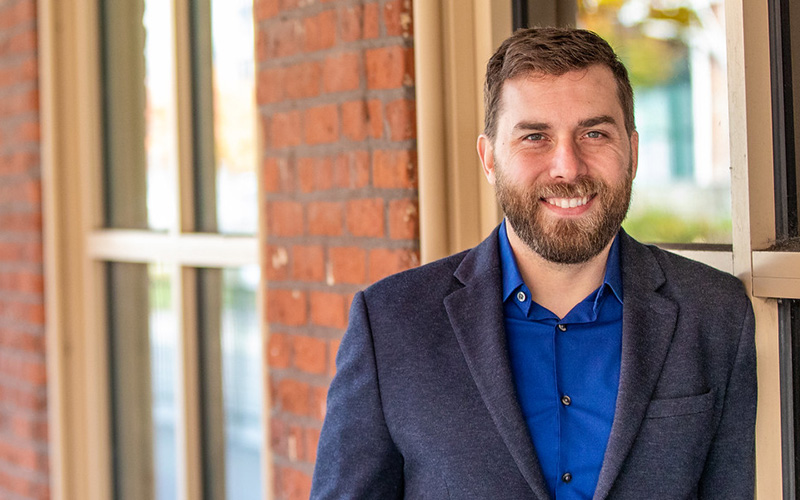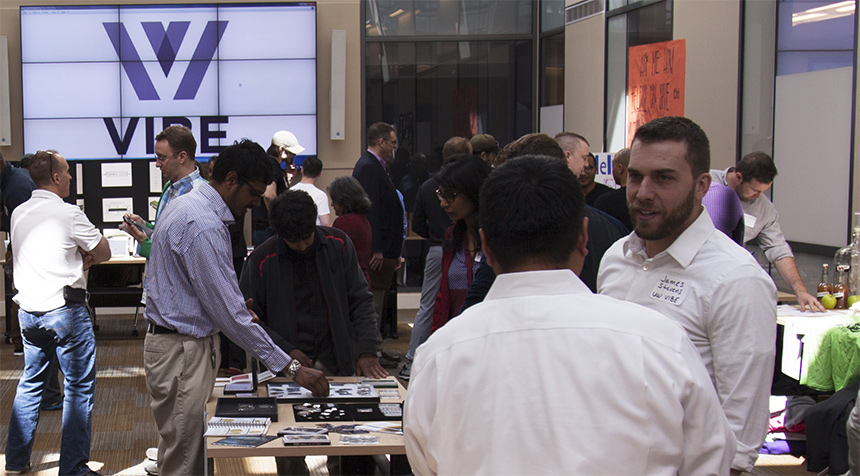
An Army 'Computer Guy' Gets His Facts Right
James Stevens, senior in electrical engineering, jumped from the Special Forces to his life as a student-veteran at UW Tacoma.
Growing up is, to some extent, a process of sorting out fact from fiction. For instance, you might go through your adolescent and teenage years thinking you weren’t smart. This is true for UW Tacoma electrical engineering senior James Stevens.
Born in Phoenix, Stevens spent a majority of his formative years living on a military base in Germany. It was there at age 17 that he decided to drop out of school and strike out on his own. “I moved out and got an apartment off base,” said Stevens. “I had to learn how to pay my bills and do everything in German.”
Stevens eventually moved back to the United States. “I was kind of lost,” he said. “I didn’t know what I was going to do.” Stevens ultimately decided to join the military. The Army expressed interest but told Stevens he needed to get his GED first. Stevens enrolled in a program to help him prepare for the test. The hard work paid off. “I actually broke down crying when I found out my results because they said I passed math and math was just this thing for me, this thing that I struggled with,” he said.
Stevens joined the U.S. Army in 2003. He successfully petitioned to work in Information Technology (IT). “Computers just make sense to me,” he said. “I remember taking apart the first computer my parents got me just to see how it worked.” At the time the Army didn’t really have “computer guys.” “I was the first one in my unit to serve in that role and that was kind of fun,” said Stevens.
“I definitely gained physical and mental confidence in the military, but my intellectual confidence has started to bloom during my time here at UW Tacoma.”
During his time in the military Stevens served in locations around the world including Iraq, Germany, England, Korea and Japan. Early on Stevens was tasked with setting up the IT infrastructure for the Special Forces unit he was embedded with no matter where they were or what resources were available. His knack for the job yielded new opportunities. “They [unit leadership] came to me and said, ‘hey, we have a job for you, we can’t tell you what it is, but if you want it, you can have it,’’ said Stevens.
Stevens spent the next two years with Army Special Forces doing technical surveillance. The nature of the work is sensitive. “I was assigned to build specialized equipment for the unit,” he said. “Sometimes that meant buying stuff commercially off the shelf wherever in the world we happened to be and reassembling it to make something that served our purposes.”
Stevens left the Army in 2015. “My body was wrecked,” he said. Stevens has no cartilage left in his hips, damage caused largely by more than 80 jumps from airplanes during his 12 year career. It should be noted that Stevens earned the right to be a jumpmaster, a highly sought after position in the Army. A jumpmaster handles the logistics of jumps. “We started with 74 people in our class and only 32 graduated,” said Stevens.
Stevens started at UW Tacoma in the winter of 2016. In 2018 he applied and was accepted into the electrical engineering program. “I definitely gained physical and mental confidence in the military, but my intellectual confidence has started to bloom during my time here,” said Stevens.
The decision to pursue electrical engineering stems from Stevens’ curiosity and his desire to challenge himself by pursuing a math-heavy major. “I could always make things work and now I’m learning why they do,” he said. Faculty have taken note of Stevens’ ability. He worked on Professor Orlando Baiocchi’s project that uses trees to power Internet-of-Things enabled sensors. “We published a paper and got to present at a conference in New York,” said Stevens.

When he’s not studying or assisting faculty, Stevens can be found in the VIBE (Veterans Incubator for Better Entrepreneurship). Stevens and VIBE Director Thomas Kuljam met a few years ago and quickly developed a friendship. “I helped him [Kuljam] start the VIBE’s business plan competition,” he said.
Growing up is, to some extent, a process of sorting out fact from fiction. The idea that Stevens isn’t smart belongs in the latter category.



